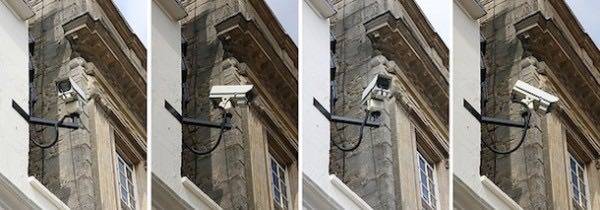
It’s the eye in the sky, patiently watching, tracking your every move. Look up and say “hi,” because with an influx of cash and a voyeuristic agenda, the FBI is more than ever the model for Big Brother.
In February, the FBI began a $1 billion pilot program using facial-recognition and other information technologies to track people. Details of the project are enough to raise most people’s eyebrows despite the FBI’s claims that the mission’s goals are to “reduce terrorist and criminal activities.”
The Next Generation Identification Program (a multi-year project underway that’s intended to be fully operational by 2014) combines facial recognition with biometric data including iris scans and search capability, a 10-point fingerprint analysis that the FBI claims is 99% accurate, and voice identification intended to spot everything from sex offenders to known terrorists. Using criminal-history databases, they can even track and identify you via your tattoo, palm print or your DNA.
The trick, as Mark Zuckerberg continues to learn, is, how do you collect and use the maximum amount of information on everyone you behold without attracting too many angry people with torches and pitchforks?
The justification for the federal government’s program is to keep people safer by putting cameras in public places to spot criminals. In other words, we watch to protect. Specifically, it claims the changes will speed apprehension of suspects and streamline paperwork.
Here’s how the facial recognition is designed to work: If you walk in front of a lens, your face will be checked against the federal government’s national repository of images. That means you, me or your grandma would be in the same lineup as that felon across the street.
This new facial recognition project isn’t the only eavesdropping program we can thank the feds for, but it is the newest (expensive) evolution in the fight between safety and privacy.
Tracking You
The government already trolls the Internet, monitoring millions of IP addresses a day, tracking specific keywords on social networks and sites (like Al Qaeda, Mexico, etc.), all in the name of public safety.
In the name of national security, like everything else legally or morally questionable (ahem, drone strikes), the U.S. government tracks people’s data via Internet cookies. One way to see who’s monitoring you is through sites like PeerBlock. Check out the White House’s Internet policies to learn more about the doublespeak going on and the reasoning behind the upskirting that people get online from Washington.
And it’s not just the United States.
The U.K. made it legal for the government’s the GCHQ, the Government Communications Headquarters, to listen to every phone and read email conversation that it can capture.
Photo by Exfordy

















